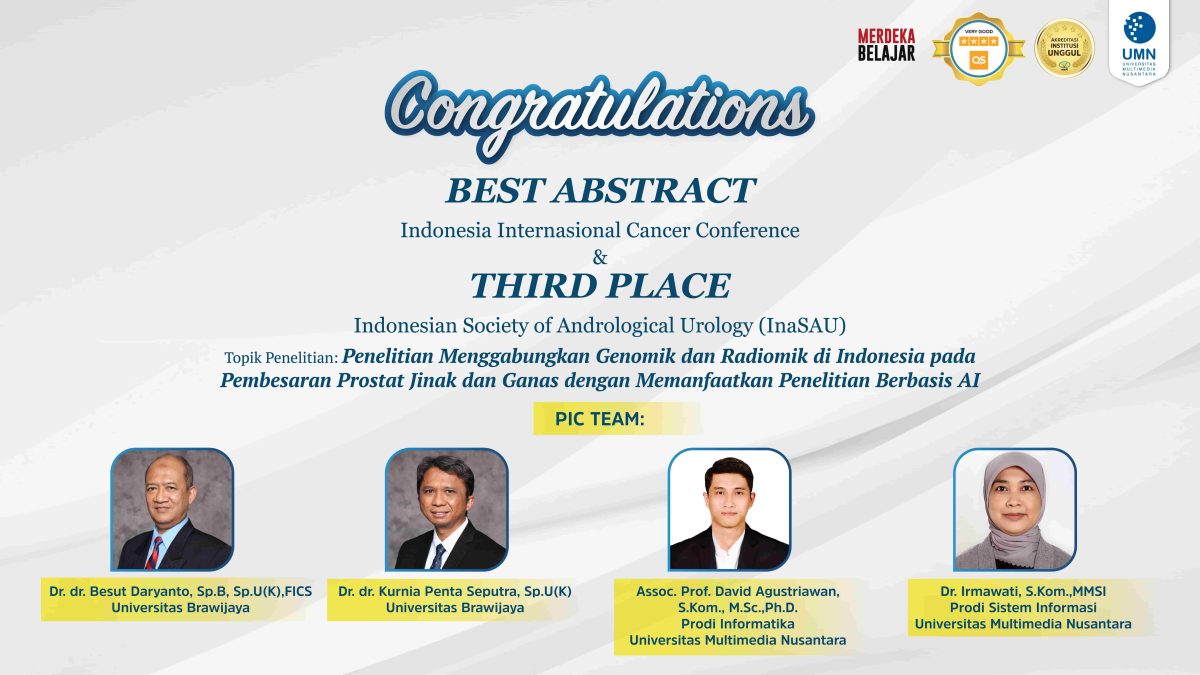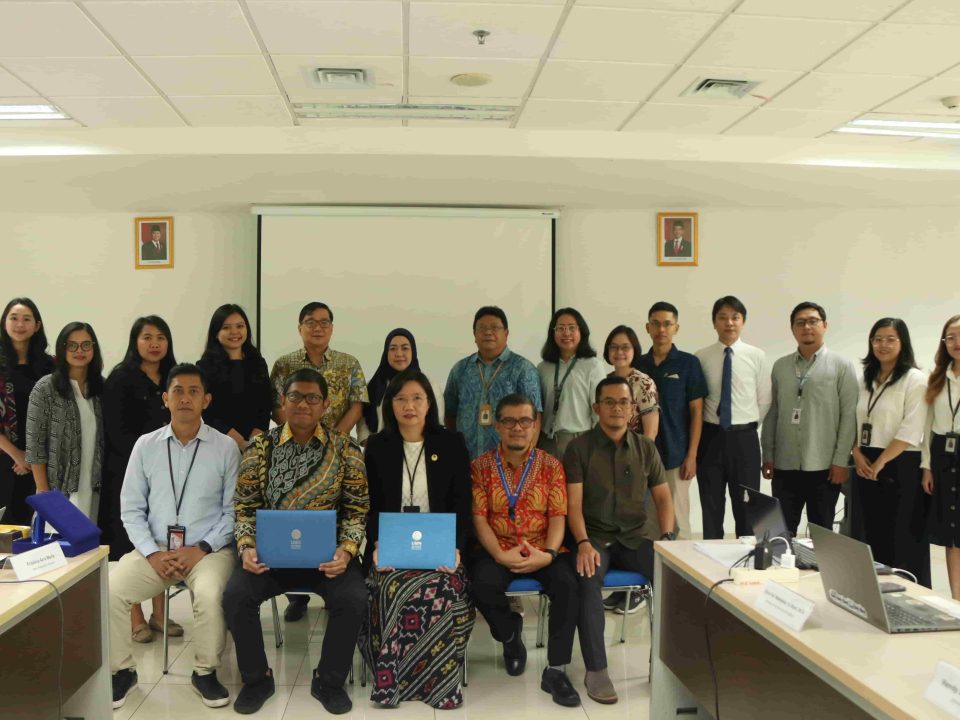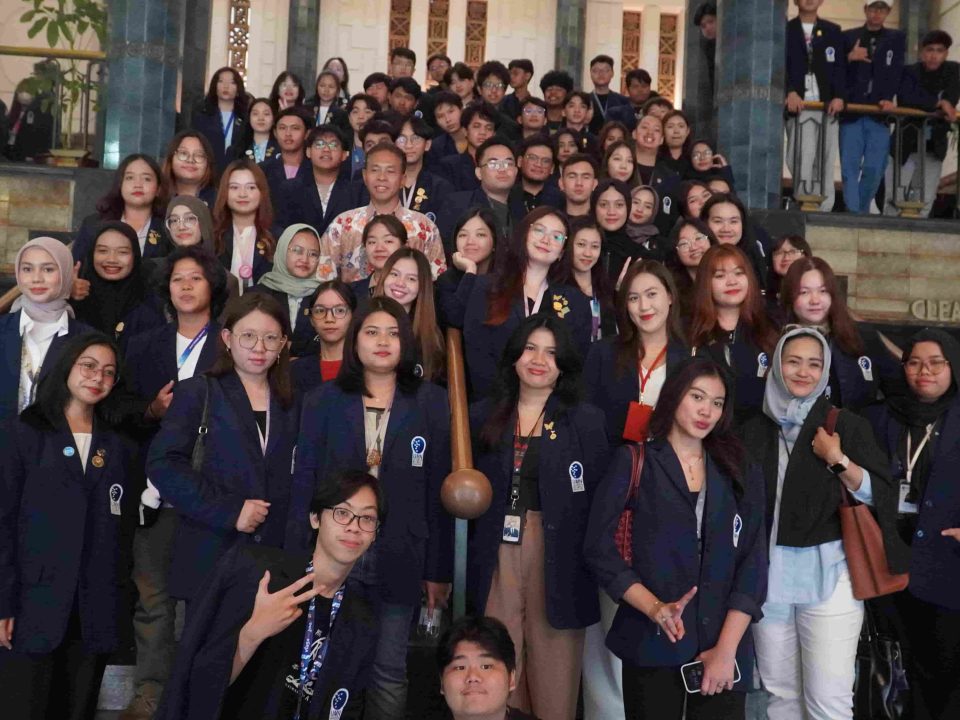
Supporting Women Empowerment: UMN Holds Photography Class for Women with HIV-AIDS
November 5, 2024
Open Defecation: A Big Challenge in Tangerang, UMN Organizes Podcast Training to Educate the Public
November 10, 2024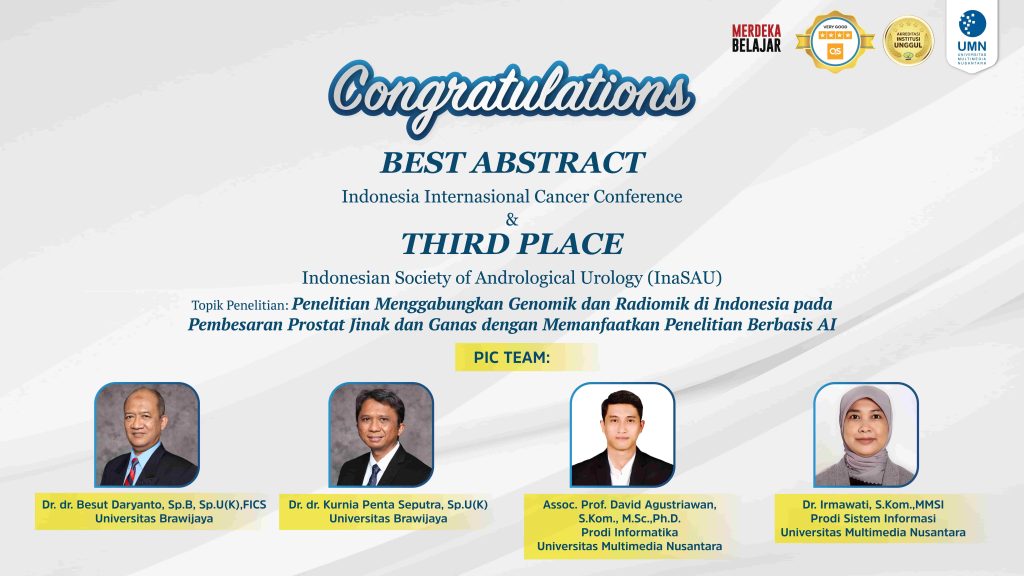
UMN Lecturer & UNBRAW Lecturer Receive Best Abstract Award (Doc. UMN)
MALANG – The Faculty of Medicine of Universitas Brawijaya (FKUB), together with the Faculty of Engineering and Informatics of Universitas Multimedia Nusantara (UMN), for the first time in Indonesia, developed a research combining genomics and radiomics on prostate enlargement by utilizing Artificial Intelligence (AI) technology.
“By understanding more about the genomics and radiomics involved in both benign and malignant prostate enlargement diseases, we can develop a more precise and personalized approach to diagnosis and treatment,” said Innovation Team Leader and Head of the Urology Department at FKUB-RSUD Dr. Saiful Anwar Malang, Dr. dr. Besut Daryanto, Sp.B.Sp.U (K).
This research develops AI technology in the health sector, applied to genetic and clinical data analysis of prostate enlargement disease. The results of the research make it possible to predict the risk of prostate enlargement disease, facilitate early diagnosis, and more effectively treat prostate enlargement disease.
“This large genetic pattern data must be analyzed with the help of artificial intelligence to get more accurate data in diagnosing, treating, and predicting the prognosis of patients,” said David Agustriawan, S.Kom., M.Sc., Ph.D from Universitas Multimedia Nusantara.

Online Discussion between FKUB and UMN Research Team (Doc. David Agustriawan)
The two institutions have been cooperating for three years since the end of April 2024. This project also received national funding support for basic research schemes from the Research and Community Service Information Base (BIMA) of the Ministry of Education, Culture, Research, and Technology (Kemendikbudristek).
Prostate enlargement is one of the most common urological diseases in elderly men. Based on data from 2024, there are 94 million cases of benign prostate enlargement globally, while malignant prostate enlargement or prostate cancer reaches more than 299 thousand cases. Prostate cancer itself is the fifth most common type of cancer that occurs in the average man in Indonesia.
The epidemiology of prostate enlargement is complex, ranging from genetic to environmental factors. Genomic studies are needed in enlarged prostate disease because genetic factors affect the patient’s response to therapy, where certain genes cause treatment resistance.
Meanwhile, radiomics research is needed in tumor treatment because tumors are related to anatomical processes that require detailed analysis using magnetic resonance imaging (MRI) and computerized tomography scan (CT-Scan).
“The presence of radiomics in Indonesia will improve the accuracy of diagnosis and staging. Radiomics in the future can also guide doctors in performing surgery,” said Dr. Irmawati, S.Kom., M.M.S.I from Universitas Multimedia Nusantara.
This research received the Best Abstract award from the Indonesia International Cancer Conference in 2024 and the third position of Best Oral Presentation Scientific Competition Session 2 in The 3rd Indonesian Society of Andrological Urology (InaSAU) Meeting in 2024. The Innovation Team hopes that this collaboration can bring great benefits to progress in the health sector, especially in the field of urology in Indonesia.
Lead Research Team
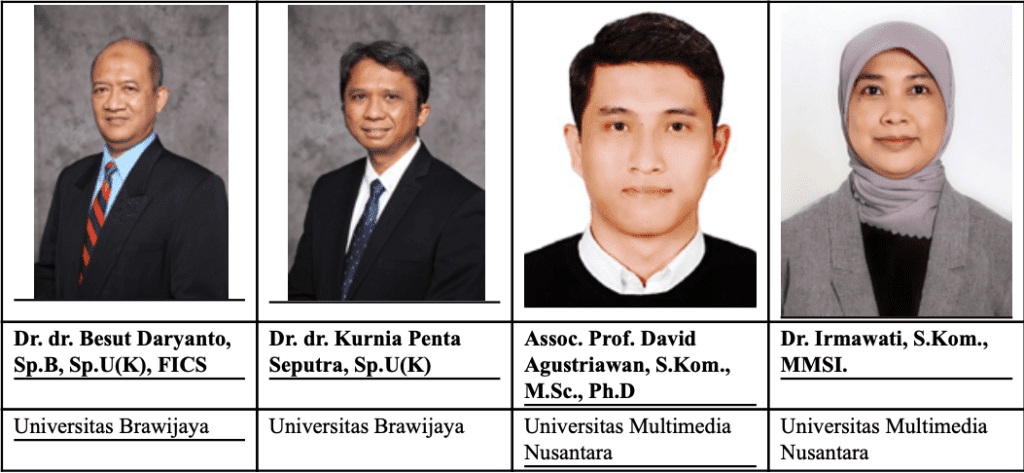 v
v
Research Lecturer Team (Doc. UMN)
Contact Person:
Dr. dr. Besut Daryanto, Sp.B. Sp.U (K)
Phone 082233678283
Email [email protected]
English translation by Levina Chrestella Theodora
Kuliah di Jakarta untuk jurusan program studi Informatika| Sistem Informasi | Teknik Komputer | Teknik Elektro | Teknik Fisika | Akuntansi | Manajemen| Komunikasi Strategis | Jurnalistik | Desain Komunikasi Visual | Film dan Animasi | Arsitektur | D3 Perhotelan , di Universitas Multimedia Nusantara. www.umn.ac.id

